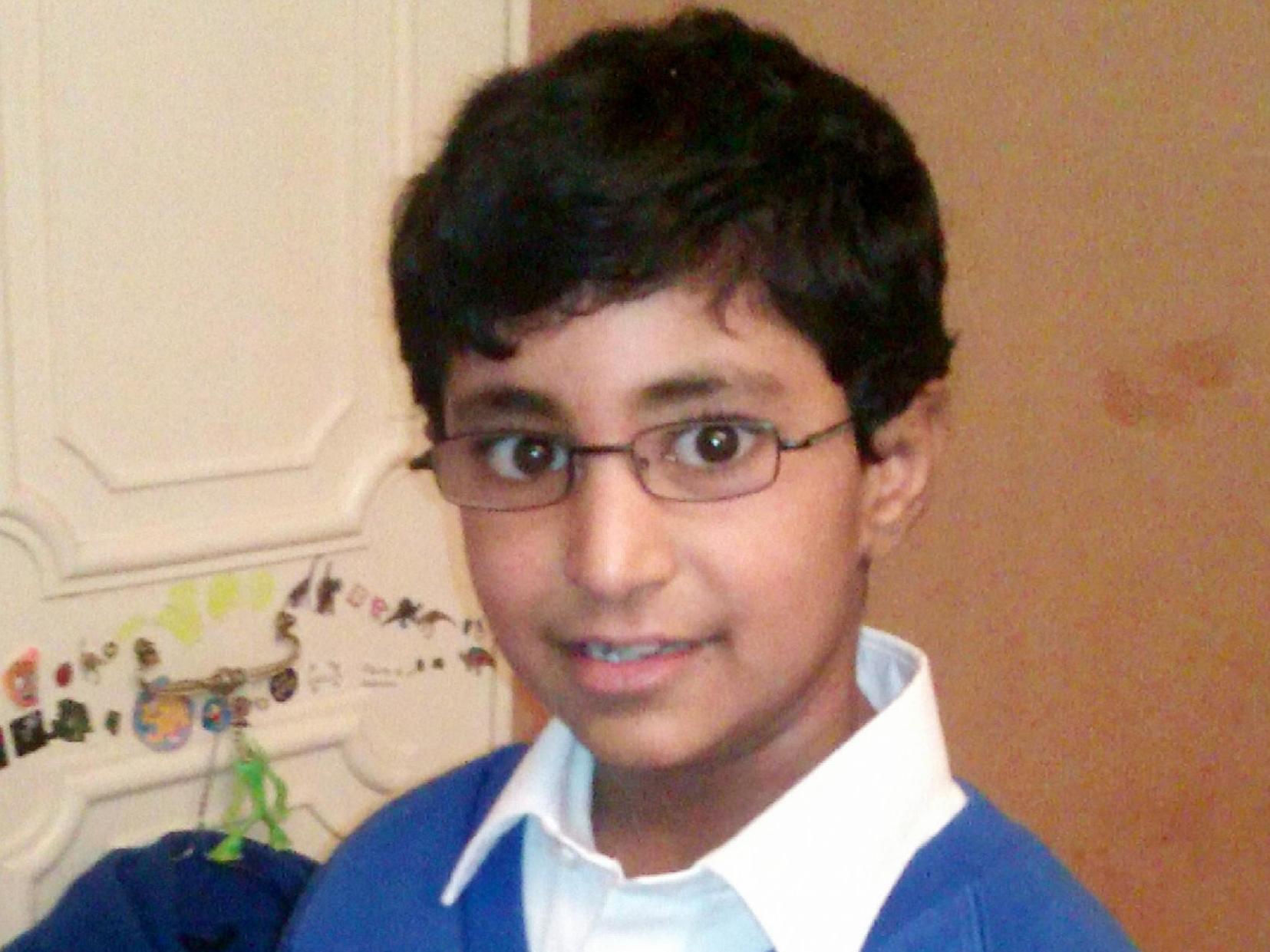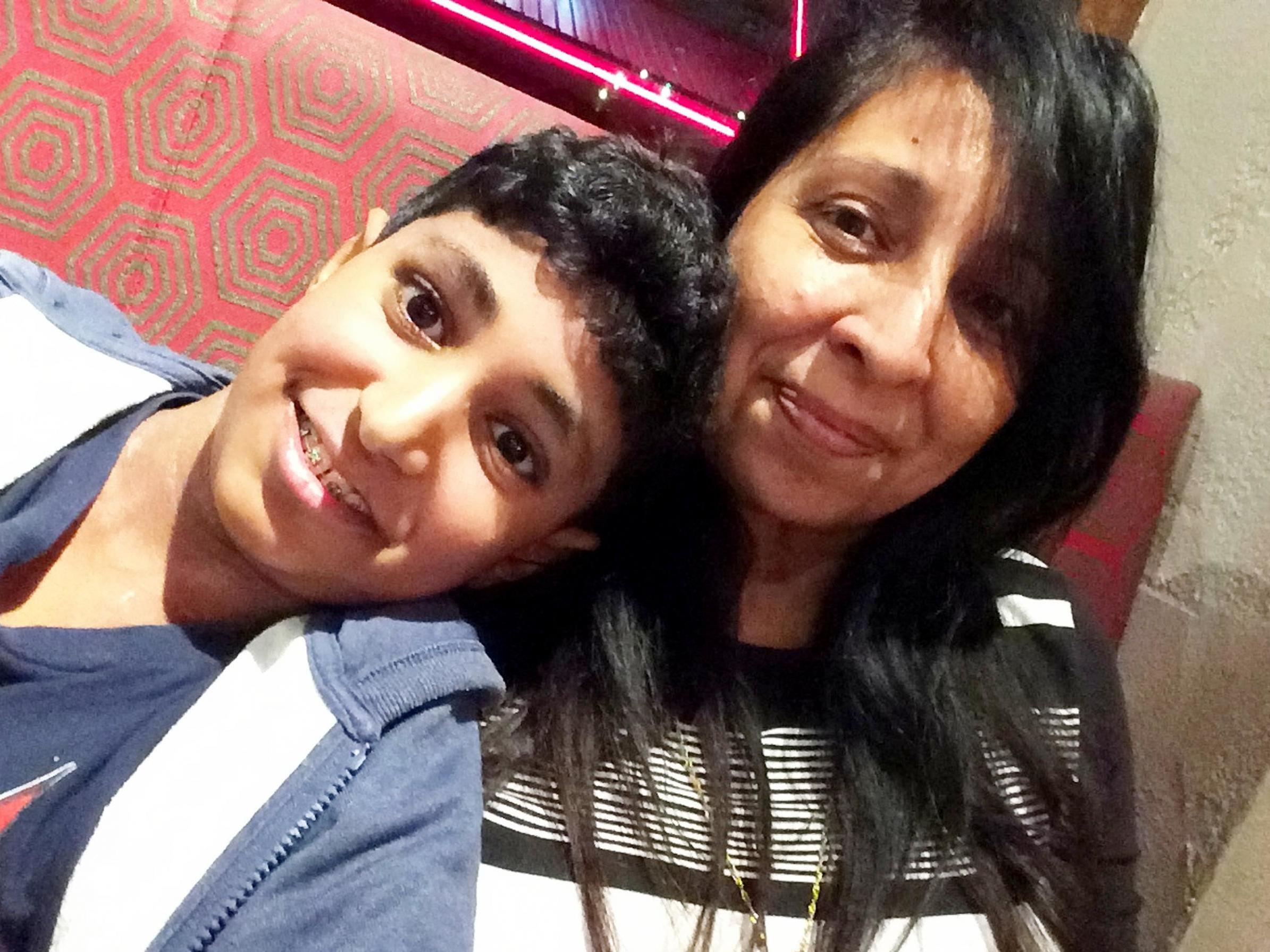Boy killed by cheese flicked at him got ‘inadequate’ care from school, coroner says
Ealing secondary rebuked for using 11-month old EpiPen on Karanbir Cheema after he was hit by cheese slice
A London secondary school could have done more to prevent the death of a 13-year-old boy with a dairy allergy who died after a slice of cheese was flicked at his neck by a fellow pupil, a coroner has ruled.
Mary Hassell acknowledged the case of severely allergic 13-year-old Karanbir Cheema was “extremely rare”, but said the healthcare given to him at William Perkin Church of England High School in Ealing was “inadequate”.
Asthmatic Karanbir, known as Karan, died almost two weeks after collapsing at his school in west London on 28 June 2017 when coming into contact with a piece of cheese.
The coroner there was a “missed opportunity” to inform pupils about the severity of his allergies, and also pointed to the delay administering an EpiPen – an adrenaline injecting device found to be 11 months of date.
The coroner absolved the boy who threw the piece of cheese of intending to hurt his fellow pupil. She said his actions were “childish and thoughtless” but not “calculated” to cause serious harm.
The inquest heard how the pupil, who cannot be identified because of his age, took a 2cm x 2cm piece of cheese from a friend’s baguette at the end of morning break-time and flicked it at Karan, triggering the “unprecedented” reaction.
Karan immediately attended first aid as his condition quickly worsened, becoming breathless, and scratched vigorously at his skin. He later suffered a cardiac arrest and was taken to hospital, but he suffered a serious brain injury due to a lack of oxygen and died almost two weeks later.
Recording a narrative verdict at St Pancras Coroner’s Court on Friday, Ms Hassell said: “I think this was a thoughtless act – and I mean that in exactly that sense. He [the boy] was simply not thinking. This was a childish and thoughtless act but was not calculated to cause serious harm.”

The inquest heard last week how the EpiPen equipment at the school was 11 months out of date, but the coroner said it was not possible to say whether having an adrenaline shot that was in date would have changed the outcome.
Ms Hassell also highlighted how Karan’s allergy action plan was not included in the school’s care plan or medical box.
The coroner said she would prepare a report intended to prevent future deaths, to be sent to Karan’s school, emergency services, government departments and relevant experts, highlighting her concerns about the boy’s care in the run-up to his death.
Speaking after the inquest, the family’s solicitor Helen Clifford said: “We are very concerned about the part that the school may have played in Karan’s death – they owed him a duty of care and we’re considering whether they have breached that duty and what the implications of that are.”

The 13-year-old’s mother Rina Cheema said: “I think it would help a lot of children out there, whatever happened to my son, if the schools, the institutions, hospital, paramedics, [were] to become aware how serious allergies are.
“My son was mature, he knew himself how fast to react. His words were at school, “Please help me or I’m going to die”. That says it all.”
Asked how she felt since his death, she replied: “Lonely. He was my best friend, my soulmate.”
She said additional factors contributing to his death included his poorly controlled asthma. Karan, who also suffered from eczema, was reported to have scratched at his neck so much that blood was visible.
Specialist allergy doctor Adam Fox told the inquest: “Further scratching and degrading of the skin barrier could have led to further contact.” Other factors making him more likely to have a severe reaction were being male, of Asian origin, a teenager, and having hayfever, he added.
Dame Alice Hudson, executive headteacher of the Church of England’s Twyford Trust, which operates the William Perkin School, said: “We are deeply sorry that we could not save Karan. We completely accept the coroner’s findings about the systems we had in place at the time, and regret that they were not enough.”
Additional reporting by agencies
Join our commenting forum
Join thought-provoking conversations, follow other Independent readers and see their replies
Comments
Bookmark popover
Removed from bookmarks